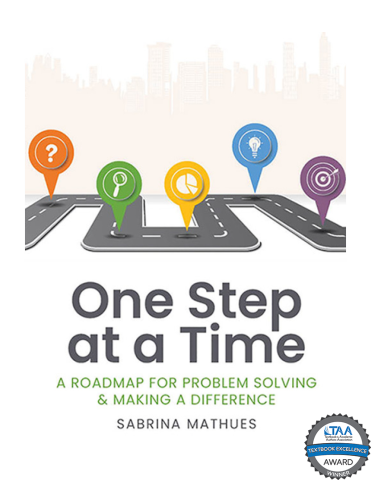Questions? Request Information
Drive Innovation and Efficiency
A project management degree program takes the knowledge, tools, and skills needed to be a strong manager and incorporates them into an engaging degree. The Bachelor of Arts in Project Management program at the University of Arizona Global Campus (UAGC) is a broad and career-focused degree, and the skills you learn can be applied to a variety of different sectors, such as health care and construction.
Once you complete your project management degree online, you will be able to carry out a variety of tasks within a business or organization, including managing staff, budgets, resources, and timelines. You’ll also learn critical project management skills related to leadership, team development, risk analysis, project cost management, schedule/task control, effective communication, and quality control. This bachelor’s degree in project management is also designed to incorporate the core business knowledge appropriate to manage wider organizational processes.
With a BA in Project Management, you will be able to:
- Apply proven project management principles to business situations
- Apply current project management best practices to initiate, plan, execute, control, and close a well-documented project
- Examine successful project team development and management strategies
- Assess how project management practices can support organizational effectiveness and the corporate strategic planning process
- Evaluate the role of risk in projects and ways to mitigate its effects
- Examine the application of ethics to the practice of project management
- Integrate dynamic business data using relevant technology solutions
UAGC Award-Winning Curriculum
Military Students $250.00/credit
Undergraduate Courses $460.00/credit
Technology Fee** $115.00/course
Books and Other Class Materials** $125.00/average per course
Graduation Fee $150.00
Total Program Cost See UAGC Catalog¹
¹Keep in mind that this figure doesn’t factor in any potential discounts, partner benefits, or impact of accepted transfer credits, if eligible.

UAGC offers enrolled students access to ScholarshipUniverse, a platform that tailors external scholarship opportunities to your unique situation, making it easier to find and apply for scholarships.
UAGC is proud to provide reduced tuition rates for our academic and corporate partners, helping community college transfer students and corporate employees earn their degrees at a lower cost.


Project Management Degree Curriculum Overview
Your online project management courses include leadership and communication skills and combine project management with basic business knowledge. Students learn how to initiate, plan, execute, control, and close projects. Though completion of the program alone does not qualify graduates to sit for the Project Management Professional (PMP) certificate exam, the online course curriculum can help you prepare for it and can be a great way for you to showcase your knowledge and skills alongside your experience in the project management field. Interested applicants for the PMP should review its website for a full list of prerequisites.
To earn your Bachelor of Arts in Project Management at the University of Arizona Global Campus, you must complete 120 credits. You will need to complete 30 upper-division credits, of which 18 credits must be from the major program. A total of 30 credits must be completed at Global Campus to meet the residency requirement. You may be able to transfer approved credits from community colleges, other previous college coursework, or other life experiences such as military service or job training toward your degree.
This program is not designed to meet the state educational requirements for a specific professional license or certification in any state. Students seeking licensure or certification in a particular profession shall carefully research the requirements prior to enrollment and regularly review the requirements as they are subject to change. Requirements vary by state. The University of Arizona Global Campus does not guarantee that any professional organization will accept a graduate’s application to sit for any exam for the purpose of professional certification. Further, a criminal record may prevent an applicant from obtaining licensure, certification, or employment in their field of study.
This program is not designed to qualify a student to sit for any certification examinations offered by the Project Management Institute (PMI) including: the Certified Associate in Project Management (CAPM), Project Management Professional (PMP), Program Management Professional (PgMP), PMI Agile Certified Practitioner (PMI-ACP), PMI Risk Management Professional (PMI-RMP), or the PMI Scheduling Professional (PMI-SP). Graduates of this program may meet some of the requirements to sit for PMI certification exams, but it is the responsibility of each student or graduate to research the requirements for each. In most instances, the requirements to sit for a PMI certification exam include a secondary diploma or a four year degree, and a certain number of documented hours of project management experience.
The Project Management Institute (PMI) is an independent entity not affiliated with the University of Arizona Global Campus. This program is not designed to fully qualify a student for any PMI certification. Students or graduates that are interested in pursuing PMI certifications shall visit the PMI website (www.pmi.org) for additional information.
Certain degree programs may not be available in all states.
The Online Teaching Support Certification recognizes programs that require all online faculty to undergo training in best practices for online course delivery, provide faculty with ongoing pedagogical support, encourage faculty professional development to increase their knowledge and skill in online teaching, emphasize instructor availability and feedback to learners, and collect and use feedback from learners to improve online teaching. Learn More

The Online Learner Support Certification recognizes programs that provide all the critical student and academic services needed for learner success and use learner feedback to continuously improve those services.

In support of the Forbes School of Business and Technology® mission, the Bachelor of Arts in Project Management program aims to inspire and educate the next generation of project management professionals through experienced faculty who design and deliver relevant and real-world business curriculum, preparing students with the skills, mindset, and ethical framework necessary to excel in diverse project environments and make meaningful contributions to their organizations and communities.
What Can I Do With a Degree in Project Management?
Just a few of the many professional careers that often begin with a Bachelor of Arts in Project Management include:
- Risk Manager
- Project Analyst
- Project Cost Estimator
- Construction Scheduler
- Project Management Specialist
Pursuing your project management degree online can be a great option for those who see themselves as being organized, social, analytical, and excellent communicators. Because project management can be an important part of nearly every industry, there are many paths for you to explore in this highly sought-after field. Whether you are a recent high school graduate or you are already becoming established in your career, earning a degree in project management can be a fulfilling experience that can lead to long-lasting benefits.
Gain insights into the project management job market by reviewing the Bureau of Labor Statistics market outlook report.
UAGC had a program that met my educational needs and a vigorous program to challenge me and help me.
BA in Project Management FAQs
-
Project management is the discipline of initiating, planning, executing, controlling, and closing the work of a team to achieve specific goals and meet specific success criteria.
-
If you enjoy planning, organizing, and leading teams to achieve specific goals, a career in project management could be a great fit for you. Project management allows you to develop strong problem-solving, critical thinking, and leadership skills, which are valuable in any career path.
-
Your online project management courses include leadership and communication skills and combine project management with basic business knowledge. Students learn how to initiate, plan, execute, control, and close projects. Though completion of the program alone does not qualify graduates to sit for the Project Management Professional (PMP)® certificate exam, the online course curriculum can help you prepare for it and can be a great way for you to showcase your knowledge and skills alongside your experience in the project management field. Interested applicants for the PMP® should review its website for a full list of prerequisites.
-
Yes, you’ll have opportunities to connect and collaborate with students, alumni, and faculty through our online learning platform.
-
Due to the wide variety of skills and knowledge that can be acquired from a project management bachelor’s degree, you will be given greater flexibility in the possible job opportunities you wish to pursue. Not only will you have the freedom to explore potential project management careers, but with a project management degree online from the University of Arizona Global Campus, you will also be given additional benefits that many traditional colleges don’t offer. These benefits include:
- 24/7 Online Service and Support
- The Latest Tools and Technology
- Free Access to Microsoft 365
- Flexibility to Work From Anywhere, Anytime
These are just a few benefits that come from the University of Arizona Global Campus Experience that make earning your project management degree online more attainable.
See What Else UAGC Has to Offer
Questions? Request More Information
To access this rate using the Liberty Grant, only eligible undergraduate active duty service members, members of the National Guard, Reservists, spouses of active duty, members of the National Guard and Reservists, Department of Defense employees using Tuition Assistance (TA), and civilian employees of the United States Coast Guard (only if utilizing Military Tuition Assistance) will qualify.
**
The Technology Fee covers access to University systems such as the online classroom, the Student Portal, and other academic resources. The Technology Fee and the Course Digital Materials (CDM) Fee are fully refundable if a student does not attend beyond Day 3 of a course (Week 3 if covered under the University of Arizona Global Campus Promise Refund Schedule). After this time, the fee becomes non-refundable. Students are charged the Technology Fee for repeated coursework. Students are not charged the CDM fee for repeated coursework if previously charged.
†
The transferability of credits is subject to the University of Arizona Global Campus transfer credit policies and requires the submission of official transcripts. The official transcripts will be evaluated by the Registrar’s Office to determine the credits that will officially apply toward a UAGC degree program. Credits must be earned at the same degree level in order to be applied. Additional restrictions may apply. See the UAGC Academic Catalog for full undergraduate and graduate transfer policies.





